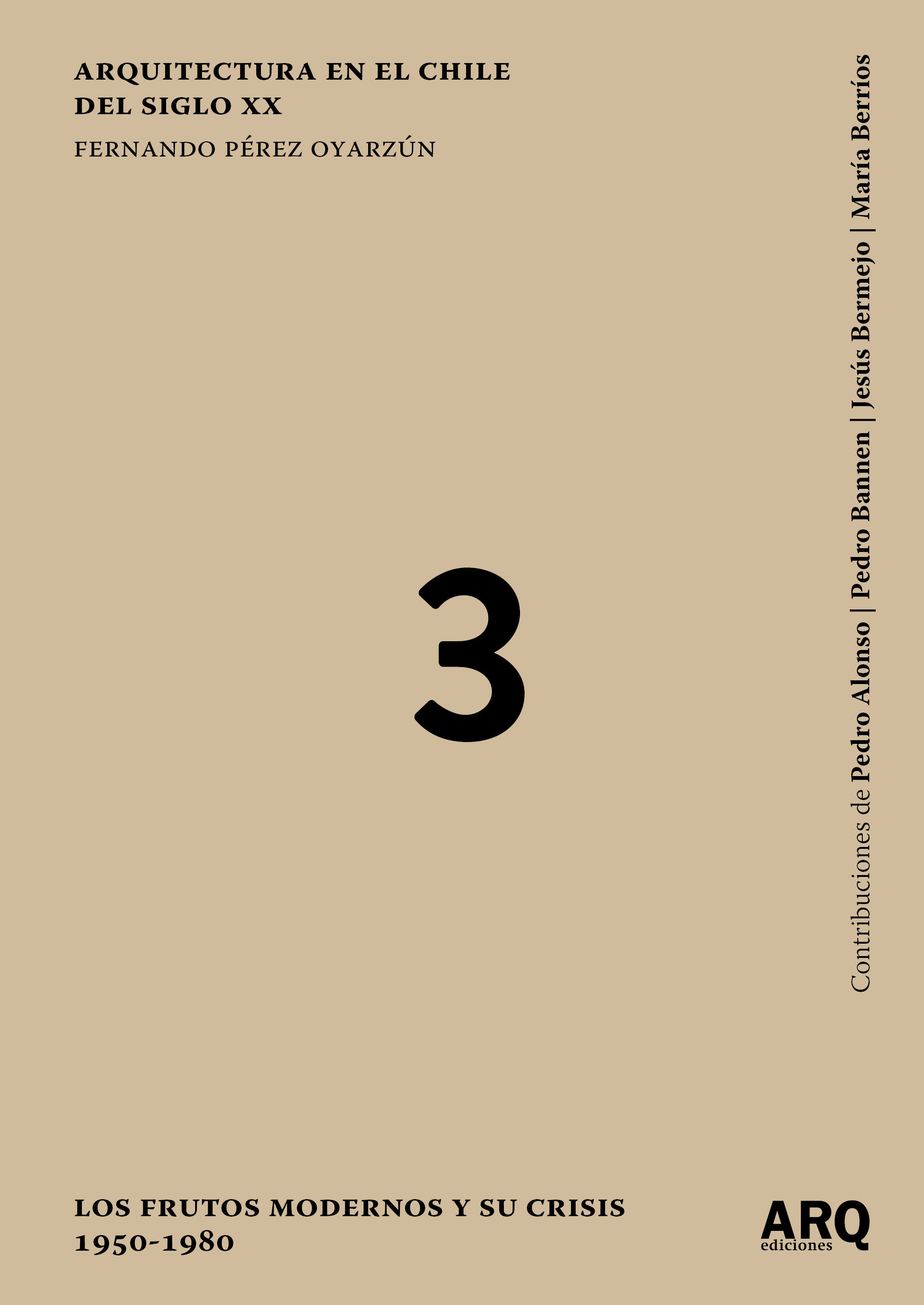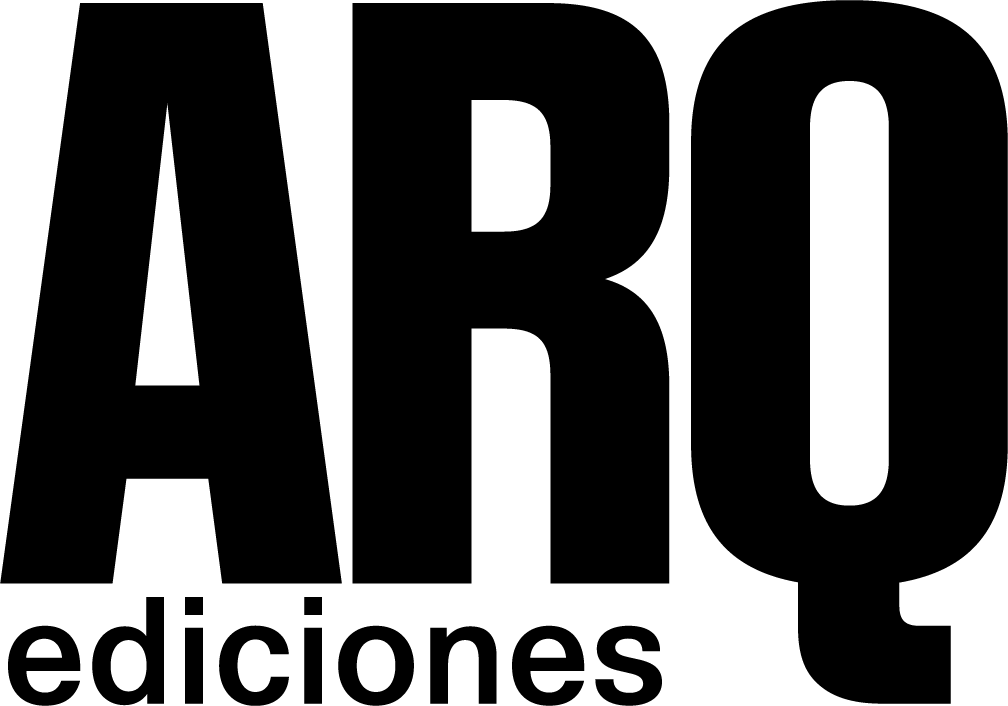
Arquitectura en el Chile del s.XX. Tomo III: Los frutos modernos y su crisis 1950 - 1980
(October 2024)
Fernando Pérez Oyarzun
Softcover
17 x 24 cm | 324 pp.
Spanish
ISBN: 978-956-6204-19-0
Los frutos modernos y su crisis, 1950-1980 is the third volume of the series Arquitectura en el Chile del siglo XX, authored by architect, academic, and researcher Fernando Pérez Oyarzun (National Architecture Award 2022). The period considered corresponds to the decades following World War II. These years are experienced in Chile as a reflection of the European reconstruction era and the emergence of a new world order shaped by the international dominance of the United States and the Cold War.
Politically, the period covers part of the presidency of Gabriel González Videla; the second term of Carlos Ibáñez del Campo; and the presidencies of Jorge Alessandri, Eduardo Frei Montalva, and Salvador Allende, interrupted by the 1973 coup d’état. It also includes the early years of Augusto Pinochet’s dictatorship and the Government Junta. These are years of growing political tensions culminating in the coup, driven by local circumstances but also international disputes, starkly evident throughout the country. Against this backdrop, the book explores architecture, cities, and the territory, heavily influenced by the ideas of systems and planning imposed by diverse political forces. Accompanying this is the emergence of new urban forms and lifestyles, such as collective housing through the proliferation of apartment buildings and the rise of informal settlements.
Contributions by: Pedro Alonso, Pedro Bannen, Jesús Bermejo, María Berríos
